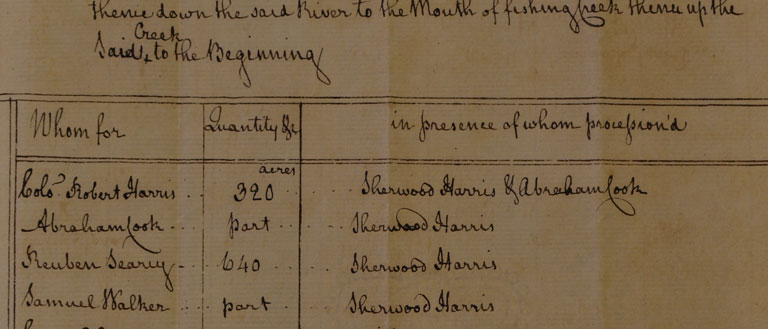
- This webinar has passed.
Exhausted All the Deeds? Use Other Land Records to Uncover Even More Information (Land)
June 17, 2024 @ 7:30 pm - 9:00 pm EDT
$25.00
Land records not only provide evidence of time and place, but they often provide information about family relationships, neighbors, wealth, occupations, and much more. The millions and millions of deeds in existence are by far the most numerous land records, and extremely important in genealogical research. Books, articles, websites, and other references on researching land records almost always focus on deeds. However, there are other types of records related to land which can be even more useful where you might find something unexpected like “Margaret Williams died without issue on the 17th day of October 1794”. This lecture will discuss those records using real examples, how to find them, and their value in your research.
Land records are generated for reasons such as obtaining land, losing land, conflicts over land, and land taxation. Conflicts related to property ownership typically ended up in court, giving the possibly of finding documents such as depositions. However, court records can be difficult to find or understand, especially since some commonly used words and phrases have different meanings today and can lead to misinterpretation. There are also records that are not land records but can contain a wealth of information about land, such as estate files. Even deeds sometimes have associated records not filed with the deed, such as mortgages or liens.
Deeds weren’t the only way of obtaining land. Land grants are property obtained directly from the government. The process of obtaining a grant involved multiple steps and could take several years, resulting in a useful paper trail. There could even be records showing your ancestor applied for a grant but never received it. Military service was sometimes rewarded with land known as “bounty land”, and those records can provide detailed records of service such as “Elescius Mason [was] a private in … Captain Phagans Company of the 39th infantry, on the 13th January 1814″.
All of these records and more will be explained, as well as information on how to interpret property descriptions using as metes and bounds and the public township/range system, and how to find old county boundaries.
